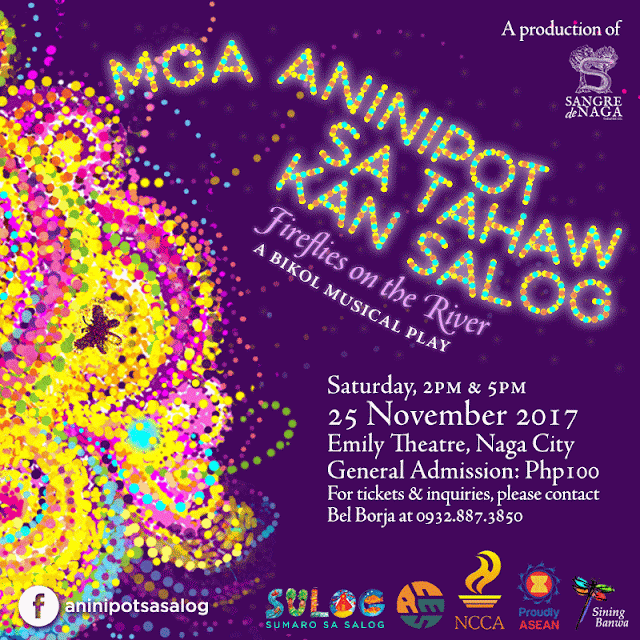Two for the Road
Bikolano poet and cultural scholar Frank Peñones, who I think is lots more cosmopolitan now than ever before, maintains too an FB account, and so does the grand dame of Bikol literary criticism, Doods Santos. And they are very much active online!
Among the very active ones in FB, however, and though rather unsurprisingly, are the much younger writers. And I’d like to name two of them, perhaps because they are both poets, and that they are both very eager so that it has already become a routine to find myself tagged in notes that upon opening will reveal a few lines or stanzas of an original poem.
Jusan Misolas and Jan Kevin de Quiroz are among those young students churning out verses every now and then and having them posted on FB. In turn, friends comment of their works, mostly discreet praises and neat expressions of liking and approval. Perhaps, the literary workshop method had gone out of the circles and found its way to the net.
I have known Jusan since he added me as an FB friend, though I don’t really remember meeting him face-to-face. Lately, I’ve learned that Jusan is a student of my Heideggerian friend Adrian Remodo (When’s the official launching of the Remodians, by the way? In a month’s time, Adrian will be a published book author through the NCCA’s Ubod Project.) My impressions of Jusan were affirmed by Adrian’s stories that were centered on one singular character of this young writer: passion for the written art. And like many other entities in this article, it is not quite surprising, for in “Kawit,” one of Jusan’s poem on FB, he wrote: “hale sa/ sarong/ malaen na/ pangiturugan.// nahimatang akong/ bagol/ an intero/ kong mga kamot.// pinutol/ daa/ ni kamatayan/ an mga ini/ habang/ dinudulagan ko/ an saiyang matarom/ na kawit.// asin sa sakuyang/ pagbungkaras/ hale sa higdaan/ kapot ko/ an sakuyang/ panurat na/ patos nin dugo.” Is there any greater passion than to murder Death so that one will write?
Kevin, on the other hand, is a was a fellow in the last Juliana Arejola Workshop sa Pagsurat-Bikol where I sat as one of the panelists, and this made it rather more unforeseen that his writings in English are better off. His short poem posted on FB reveals something about the one’s faculty to edify a phenomenon with a hint of gentle sarcasm. Here it is: “Sunrise” Who wouldn't get caught in awe/ as sunlight could feel our eyes/ as they slowly open/ and weariness steps out?// Then, as soon as we rise from bed,/ the mountains peel off their blankets/ of daylight. The sheets of sun then,/ slide freely from the mountain's peak// to its foot, leaving it vulnerable/ from the huge yellow eyes to peruse/ its fragile nakedness,// as it bathed under the shower/ of the cool mist./ Life is a beautiful cycle.”
Jusan and Kevin are two younger Bikolano writers writing primarily in Bikol. Just like us, and their non-writer contemporaries, their world is made vast by agents that come by way of social networking websites like the Facebook. They post their works on these sites. An effortless proof that works in Bikol are universal too. They get workshopped there, despite the utter lack of academic structures and the high and mighty ordaining literary theories and frameworks.
Who are they writing for in the first place? For now, it may just be enough for them to know that their friends are reading their works and thereafter to learn that their works are appreciated in no-nonsense and unassuming comments like: “gayunon man po baga” or “matarom an pagmate mo ngunyan ay” or simply, the Bikolano expression, “orag!”


Comments